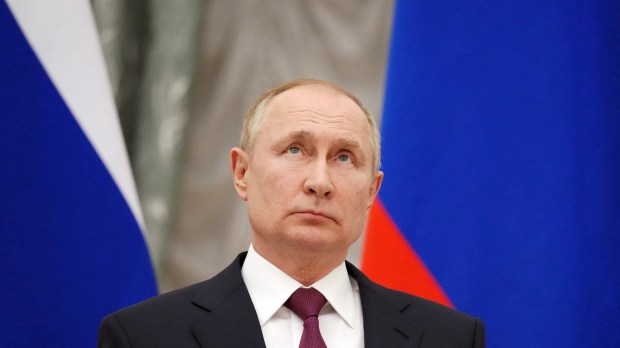Monday 28 March 2022
1 – What the Greek Catholic Church can tell us about Vladimir Putin
2 – Father Spadaro criticizes Joe Biden’s use of John Paul II
3 – India: when religion is not the freedom to believe but a hotbed of indoctrination
4 – Chinese Catholics battle against raging pandemic
5 – In the Holy Land, an application to involve young people in the Synod
What the Greek Catholic Church can tell us about Vladimir Putin
By inviting H.B. Borys Gudziak, representative of the Ukrainian Greek Catholic Church to the US, the University of Notre Dame is making a gesture of solidarity to Ukraine. The Catholic news site Crux notes that the Ukrainian Archbishop could provide insight into what Russian historian Jane Burbank in the New York Times sees as the origin of Putin’s ambitions: Eurasianism. This conception of Russia, inspired by the Mongol Empire of Genghis Khan, foresees the recreation of a Eurasian Empire and is based on the idea of a specific place of the Russian ethnic group in history. With this concept being learned at the highest level in Moscow, it could suggest that Vladimir Putin does not intend to stop at Ukraine.
Crux, English
New York Times, English
Father Antonio Spadaro, the influential director of the Jesuit magazine La Civilta Cattolica warns in the Italian daily La Stampa against the use of religious rhetoric for political purposes. According to him, American President Joe Biden’s use during a speech in Warsaw of John Paul II’s famous quote “don’t be afraid” was very inappropropriate. He notes that the American president forgot to quote the rest of the Polish pontiff’s speech: “Open, open wide the doors to Christ!” Asking that religious declarations not be turned into political speeches, he said that this rhetoric used by Joe Biden was not Christian.
La Stampa, Italian
India: when religion is not the freedom to believe but a hotbed of indoctrination
Debates regarding the Muslim veil continue to be discussed in India, after some hijab-wearing students protested against their school, who told them they were not allowed to cover their face in a public institution. Jesuit Father Myron J. Pereira, an academic, journalist and editor based in Mumbai, gives his opinion in an article on UCANews. Father Pereira underlines that “the girls in question proudly wish to assert their identity in a society that is rapidly being Hinduized” and where minorities are increasingly pushed aside. However, he also acknowledges that often religion is exploited to justify covering the female body when men feel their place is being threatened in a society. Thus, Father Pereira wonders whether these debates concern “a woman’s right to choose” or “a question of communal identity?” “As India slowly slides away from the constitutional values of secularism, democracy and equality before the law, what looms ahead is not freedom but enslavement to archaic and feudal values. Religion is being invoked not as the freedom to believe and dissent but as the hotbed of indoctrination and rigidity,” concluded Father Pereira.
UCANews, English
Chinese Catholics battle against raging pandemic
Two years later, the same headlines, the same images, the same messages… COVID-19 is once again raging in southeast China. This time, Catholics are on the front line in the fight against a new epidemic. In addition to providing education on barrier measures, the Church is heavily involved in medical assistance. Priests have led teams of volunteers to conduct medical tests and maintain isolation centers. Nuns have joined support centers. And on social networks, young Catholics continue to spread health awareness messages.
UCANews, English
In the Holy Land, an application to involve young people in the Synod
The Latin Patriarchate of Jerusalem officially launched the “Synod App” on March 23, in order to facilitate the voice of the Catholic faithful in the synodal journey. “What is the Church of your dreams? Send your message to Pope Francis!” invites the app, with which one can record a 30-second message and a short text. A local team will then study the messages of the faithful until the summer of 2022. With this platform, the Catholic Ordinaries of the Holy Land hope to reach the younger generations who are disinterested in this two-year process desired by the Pope (2021-2023). “We must convince young people that the Church needs this liberation of the word, that if there is something they do not like, they can initiate a movement for change,” said Father Piotr Zelazko, patriarchal vicar of the Hebrew-speaking Catholic community, who initiated the application.
Terre Sainte Magazine, French

